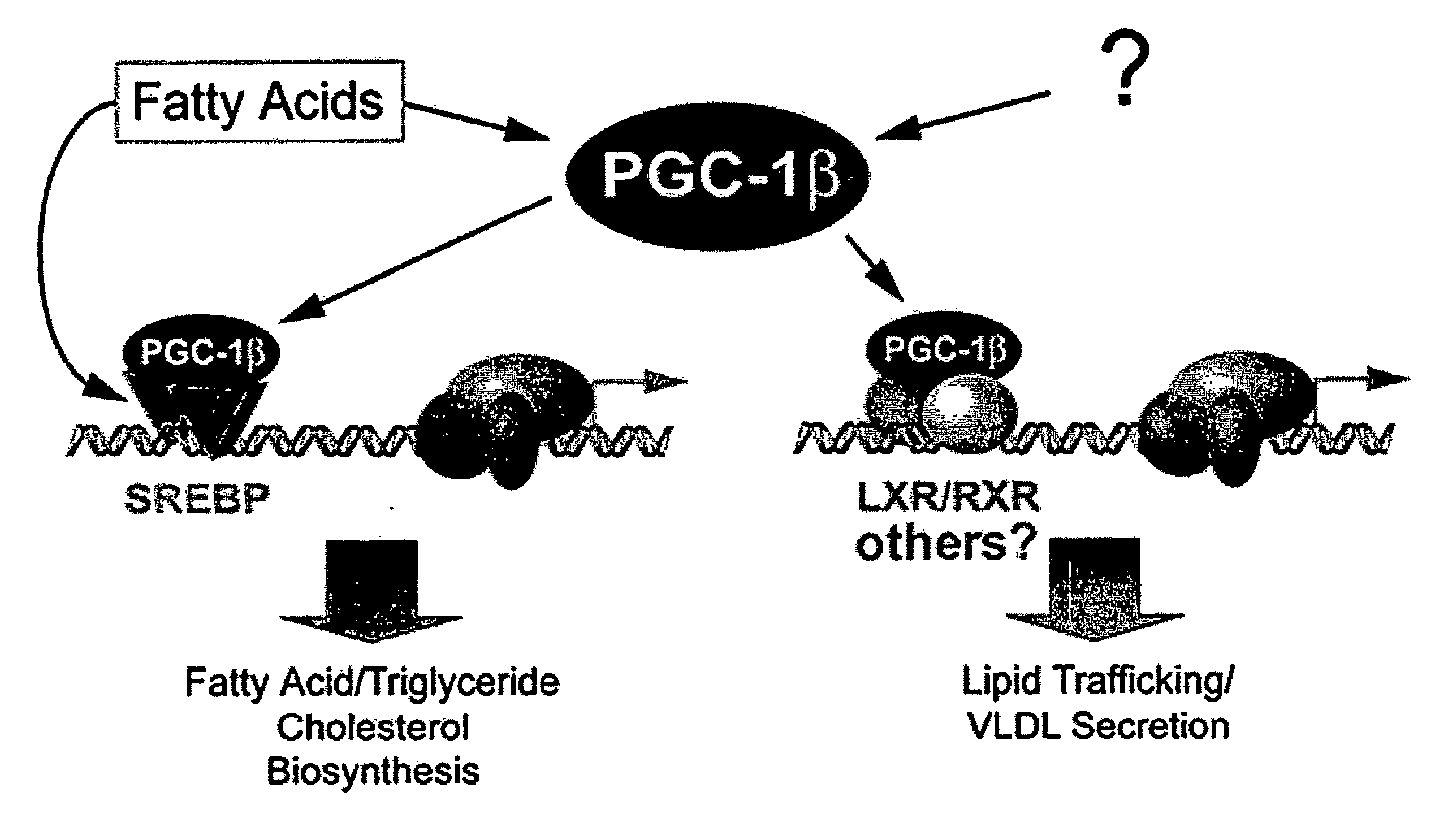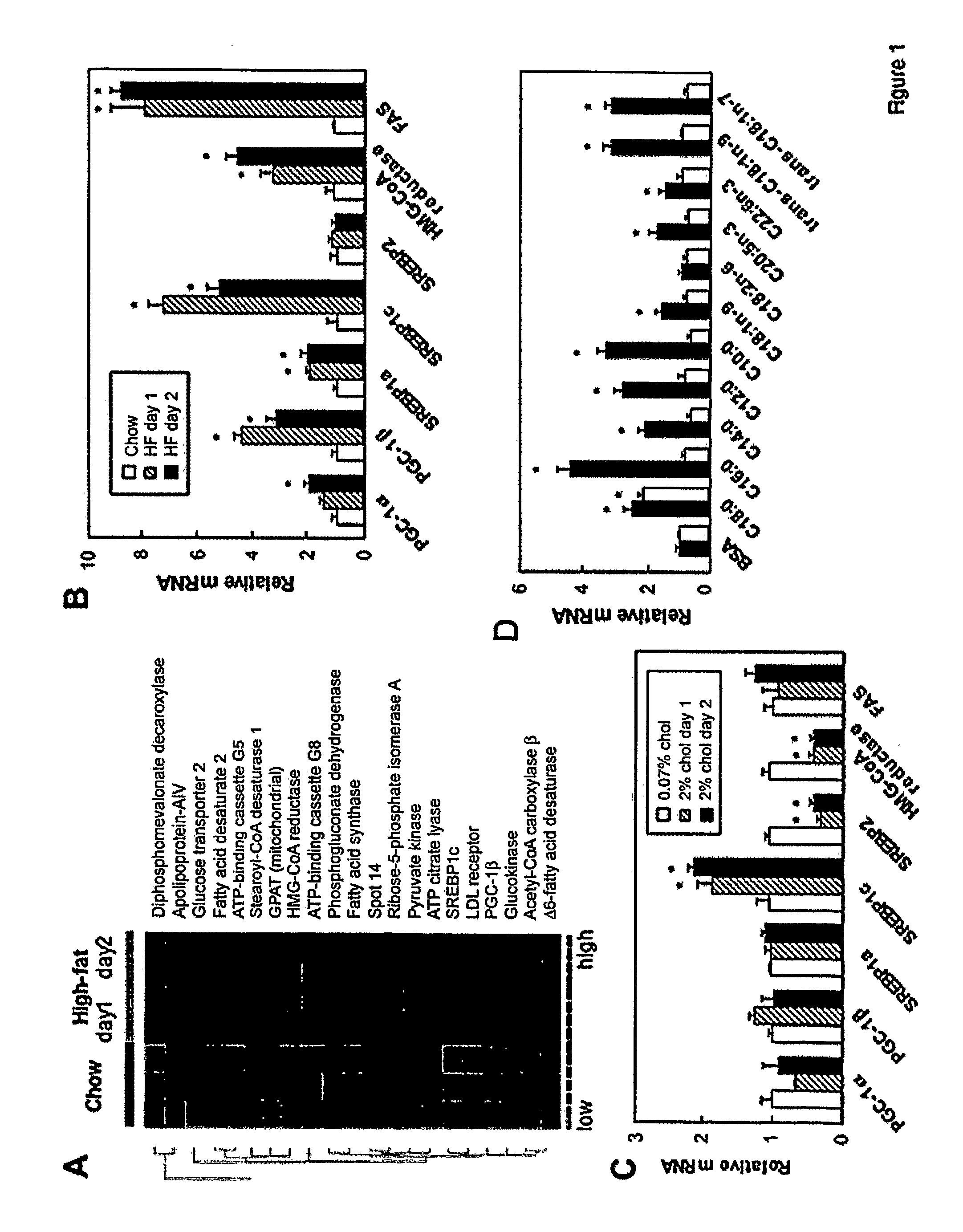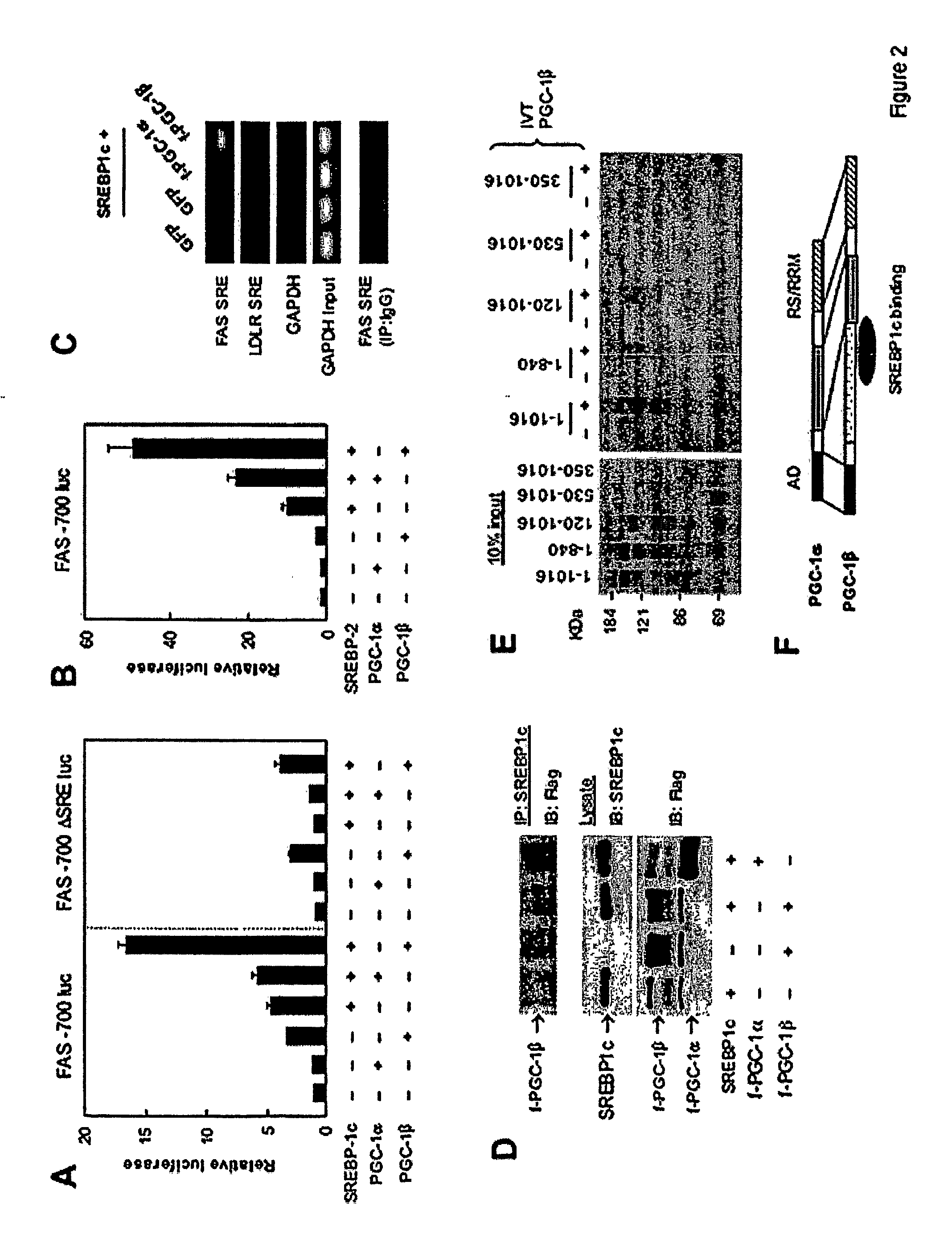Compositions and Methods For Modulating Pgc-1Beta to Treat Lipid-Related Diseases and Disorders
a lipid-related disease and lipid-related technology, applied in the field of compositions and methods for modulating pgc-1beta to treat lipid-related diseases and disorders, can solve the problem of independent risk factor of increased plasma triglyceride levels, and achieve the effect of high atherogenic potential
- Summary
- Abstract
- Description
- Claims
- Application Information
AI Technical Summary
Benefits of technology
Problems solved by technology
Method used
Image
Examples
example 1
Stimulation of a Program of Hepatic Lipogenesis by High-Fat Feeding
[0281]Mice were fed a diet rich in saturated fats but with little or no cholesterol (58% fat, mainly from hydrogenated coconut oil; D 12331, Research Diets™). Because these diets are known to bring about many chronic effects, such as insulin resistance and obesity, the experiment focused only on early changes. Mice were switched from standard rodent chow to the high-fat diet for 1 and 2 days, and hepatic gene expression was examined with Affymetrix™ arrays. Results obtained from clustering analysis revealed that the expression of a large number of genes involved in de novo lipid synthesis are strongly induced following this short-term high-fat feeding, including those responsible for fatty acid, cholesterol and triglyceride synthesis (FIG. 1A). The expression of mRNAs encoding glucose transporter 2, several enzymes in the glycolysis and pentose phosphate-pathways and those involved lipid trafficking, are also coordin...
example 2
Coactivation of the SREBP Family of Transcription Factors by PGC-1β
[0284]PGC-1β has been shown to strongly coactivate several transcription factors, including nuclear receptors such as PPARβ and ERRs, and to a lesser extent, HNF4α (Kamei et al. (2003) Proc. Natl. Acad. Sci. USA 100, 12378-12383; Lin et al. (2002a) Nature 418, 797-801; Lin et al., (2003) J. Biol. Chem. 278, 30843-30848). PGC-1β also coactivates NRF-1, which is not a nuclear receptor. Co-induction of PGC-1β and SREBP 1c in the liver of high-fat fed mice suggests that PGC-1β might modulate the transcriptional activity of SREBP1c and influence the expression of its target genes. To examine this theory, hepatoma cells were transiently transfected with a luciferase reporter under the control of the FAS promoter; this construct contained a functional SREBP binding site and is highly responsive to the SREBPs (Joseph et al. (2002) J. Biol. Chem. 277, 11019-11025; Magana and Osborne (1996) J. Biol. Chem. 271, 32689-32694; Ton...
example 3
Activation of Hepatic Lipogenesis and Hyperlipidemia by PGC-1β
[0286]To examine the effects of PGC-1β on the expression of endogenous lipogenic genes, rats via tail vein injections were infused with recombinant adenoviruses expressing β-galactosidase (β-Gal), PGC-1α or PGC-1β. Adenovirus almost exclusively infected hepatocytes when introduced through the tail vein. The results demonstrate that both PGC-1β and PGC-1α stimulate the expression of lipogenic genes such as cytochrome c, βATPase and medium chain acyl-CoA dehydrogenase (MCAB) when ectopically expressed in liver (FIG. 3A). In addition to the induction of lipogenic genes, PGC-1β also powerfully stimulates the expression of genes involved in lipid synthesis, such as FAS, SCD-1, HMG-CoA reductase, DGAT and GPAT, all of which are well-known SREBP targets. In contrast, PGC-1α has little or no effect on the expression of these genes. The expression of microsomal triglyceride transfer protein (MTTP), a gene that regulates VLDL secre...
PUM
| Property | Measurement | Unit |
|---|---|---|
| pH | aaaaa | aaaaa |
| Tm | aaaaa | aaaaa |
| pH | aaaaa | aaaaa |
Abstract
Description
Claims
Application Information
 Login to View More
Login to View More - R&D
- Intellectual Property
- Life Sciences
- Materials
- Tech Scout
- Unparalleled Data Quality
- Higher Quality Content
- 60% Fewer Hallucinations
Browse by: Latest US Patents, China's latest patents, Technical Efficacy Thesaurus, Application Domain, Technology Topic, Popular Technical Reports.
© 2025 PatSnap. All rights reserved.Legal|Privacy policy|Modern Slavery Act Transparency Statement|Sitemap|About US| Contact US: help@patsnap.com



